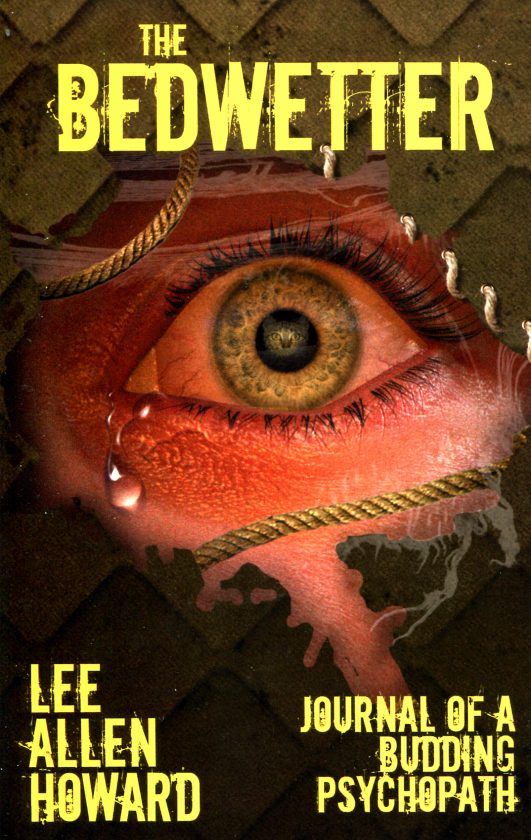Dark Fiction
Author Has Always Been Drawn To Horror Since Grade School

He is out for blood.
Figuratively speaking of course, Lee Allen Howard has been writing dark fiction since grade school.
“Since I was in second grade, I can’t do anything but. I started writing stories when I was in second grade,” Howard said.
The son of a pastor, Howard grew up in Berne, Ind., and loved writing about dark fiction.
“I wrote a story that was horror-based and my second grade teacher gave it to the school principal who was president of the Lions Club in the town where my father was pastor. He fined my father a dime because the preacher’s son wrote a story full of witches, skeletons and blood. That is the first time that money changed hands for my writing, but it didn’t go into my pocket,” Howard said.

Howard continues his brand of dark fiction with his new book “The Bedwetter.” He said the psychological thriller is a slight departure from his previous works in that it’s more coarse in nature. “The Bedwetter” will be out May 1.
Aside from dark fiction and psychological thrillers, Howard writes about horror, young adult gothic, dark fantasy, and dark science fiction. “It’s all kind of creepy stuff. Ideas seem to come out of nowhere or I’ll have a couple of ideas and when they come together then usually inspiration grips me and just inspires me to develop the story and go through the writing process,” the author said.
As part of the process, Howard outlines his stories. “I do outline. I used to try to write from the seat of my pants, and it ended up with a lot of stories that didn’t go anywhere. I didn’t know what was supposed to happen next. So now I am a big outliner. I know exactly what’s going to happen in every scene of the book. And from that outline, I sit down and write each scene,” he said.
Howard said his writing routine is more of a writing cycle. “Instead of a routine, I call it a cycle because there are times when I’m gathering inspiration,” Howard said. “I watch a lot of movies. I read a lot. I work on ideas or work on some marketing. Once I get an idea and start developing it, then that is my process. I go from the idea development to the three-act structure.” Once he has the three-act structure complete, he will outline. After the outline is finished, he will write. “After that it is revision and editing,” he added.
His number of revisions depends on the book he is writing. “I try to let things set for a while to clear my mind of it, for a month or so, and then come back to the revision and the editing. I put that one (“The Bedwetter”) on the shelf for quite a while and decided to come out with it this year,” Howard noted.

Howard who has bachelor’s in English Literature from Indiana University of Pennsylvania, and a master’s in Writing Popular Fiction from Seton Hill University in Greensburg, Pa., prefers to write at night. During the day he is a technical writer for a software company based in Palo Alto, Calif.
He has been doing that for 12 years. So he works his day shift and by 5 p.m. he is ready to get out of the house, get some dinner, and changes gears from technical writer to fiction writer. “I’m using my left brain with technical writing all day and then switch it over to the more creative side in the evening and on the weekends.
Currently he writing a piece that is a zombie-action novella. “I have 16 scenes, so I have to look at my outline notes and then I just write the scene. I make myself sit there until my scene is done,” Howard said
When writing, Howard is not looking for word count or page count. When he finishes with the outline notes, then he is finished with the scene. Some writers allow themselves a specified time for writing or until a specified word count has been reached.
Howard exhausts his outline notes before a scene is finished. “It could take a half an hour or it could take two hours,” he said. On that schedule, Howard hopes to have his new novella finished within a 16-day period. “I could beat myself up about trying to have some religious schedule that I keep, but life doesn’t work out that way.”
He said he doesn’t obsess over how a novel is written because he will revise what was written. During revision and editing is when he worries about the language.
“The creative mode is something you want to let flow, and you don’t want to stop and nitpick along the way or you will never get it done.”
For more information on Howard and his books visit leeallenhoward.com.







